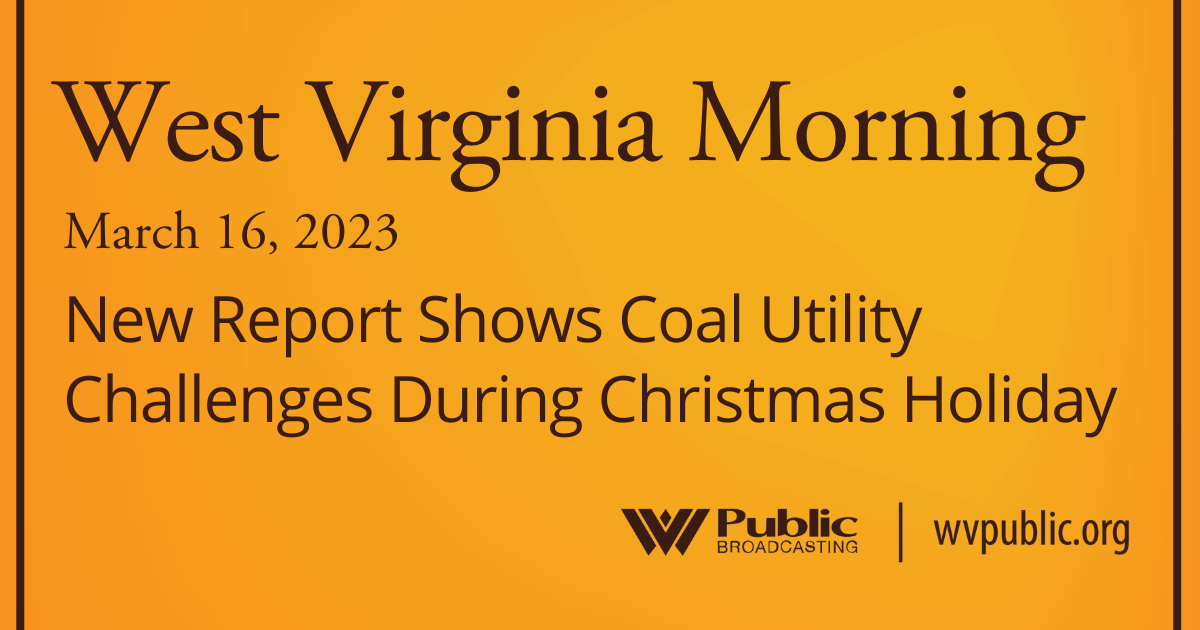On this West Virginia Morning, coal’s supporters have bragged about the performance of the fossil fuel during the deep freeze over Christmas weekend. But as Curtis Tate reports, not all coal units were available to help, even in West Virginia. That’s according to a new report from Standard & Poor’s.
Also, in this show, WMMT reporter Katie Myers covered last year’s floods in eastern Kentucky. Then she helped guide British reporter Philip Reevell as he worked on a documentary for the BBC. Inside Appalachia host Mason Adams talked with both about covering the floods and being part of the story.
West Virginia Morning is a production of West Virginia Public Broadcasting which is solely responsible for its content.
Support for our news bureaus comes from West Virginia University, Concord University, and Shepherd University.
Listen to West Virginia Morning weekdays at 7:43 a.m. on WVPB Radio or subscribe to the podcast and never miss an episode. #WVMorning
